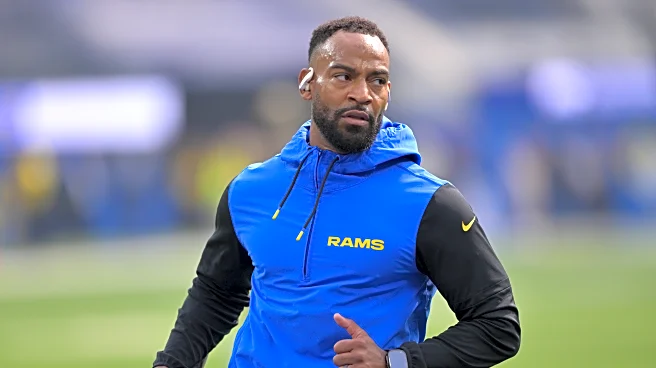What's Happening?
Chipotle, a major player in the fast-casual dining industry, has been under scrutiny for its treatment of employees despite its financial success. Founded in 1993 by Steve Ells, Chipotle grew rapidly, becoming a publicly traded company in 2006. However, the company faced challenges with food safety issues starting in 2015, leading to a change in leadership. Brian Niccol, former CEO of Taco Bell, took over in 2018 and implemented efficiency-focused changes that boosted Chipotle's revenue from $4.9 billion in 2018 to $11.3 billion in 2024. Despite these financial gains, employees have reported a decline in working conditions, including reduced training quality, shorter breaks, and inadequate staffing. Chipotle has faced legal challenges, including a $20 million settlement with New York City over scheduling violations and a $2.9 million settlement in Seattle for similar issues. The company has also been criticized for high employee turnover rates and scheduling practices that disrupt workers' lives.
AD
Why It's Important?
The situation at Chipotle highlights the tension between corporate profitability and employee welfare in the fast-food industry. While Chipotle's financial turnaround has been celebrated by shareholders, the reported decline in employee conditions raises questions about the sustainability of such business practices. The company's approach to labor management could impact its reputation and customer satisfaction, as evidenced by complaints about portion sizes and service quality. Additionally, Chipotle's legal settlements and inclusion on the 'Employer Wall of Shame' suggest potential risks for other companies that prioritize efficiency over employee rights. The broader implications for U.S. labor practices in the fast-food sector are significant, as they may influence public policy and labor laws aimed at protecting workers.
What's Next?
Chipotle's future actions will likely focus on addressing employee concerns and improving workplace conditions to mitigate negative publicity and legal challenges. The company may need to reassess its training programs and staffing levels to ensure compliance with labor laws and enhance employee satisfaction. As Chipotle continues to expand, opening more than 300 locations this year, it will be crucial for the company to balance growth with ethical labor practices. Stakeholders, including labor unions and advocacy groups, may increase pressure on Chipotle to adopt fairer employment practices, potentially leading to more unionization efforts and legal scrutiny.
Beyond the Headlines
The Chipotle case underscores the ethical considerations in corporate management, particularly in industries reliant on low-wage labor. The company's shift from a culinary-focused culture to a fast-food ethos reflects broader trends in the industry, where cost-cutting measures can compromise employee welfare and product quality. This situation may prompt discussions about the role of corporate responsibility in ensuring fair labor practices and the impact of business strategies on employee morale and customer experience. Long-term, Chipotle's approach could influence industry standards and consumer expectations regarding ethical business operations.











